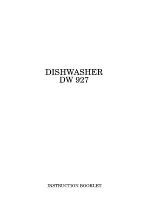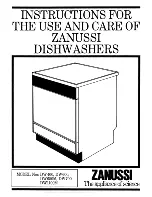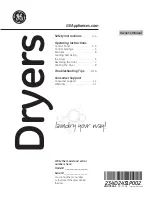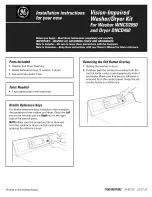
Utensils
en
13
Switching off rinse-aid refill
indicator
If the rinse-aid refill indicator
X
is
impaired (e.g. when using combined
detergents containing rinse-aid
component), it can be switched off.
ヽ
Proceed as described under “Setting
amount of rinse aid” and select
setting 0.
The rinse aid refill indicator
X
is now
switched off.
-
Utensils
U
t
e
n
s
i
l
s
Not suitable
ヽ
Cutlery and utensils made of wood.
ヽ
Delicate decorative glasses, craft
and antique utensils. These decors
are not dishwasher-proof.
ヽ
Plastic parts not resistant to heat.
ヽ
Copper and tin utensils.
ヽ
Utensils which are soiled with ash,
wax, lubricating grease or ink.
Aluminium and silver parts have a
tendency to discolour and fade during
the wash cycle. Even some types of
glass (e.g. crystal glass objects) may
turn cloudy after many wash cycles.
Glass and utensil damage
Causes:
ヽ
Glass type and glass production
process.
ヽ
Chemical composition of the
detergent.
ヽ
Water temperature of the wash
programme.
Recommendation:
ヽ
Use only glasses and porcelain
which the manufacturer designates
as dishwasher-proof.
ヽ
Use a detergent which protects
utensils.
ヽ
Take glass and cutlery out of the
dishwasher as soon as possible after
the programme ends.
Loading the dishwasher
1.
Remove large food remnants. It
is not necessary to prerinse utensils
under running water.
2.
Place the utensils so that
– they are secure and cannot tip
over.
– all utensils with their openings
face down.
– parts with curves or indentations
are at an angle, thereby allowing
water to drain.
– they do not obstruct rotation
of the spray arms
1:
and
1B
.
Very small utensils should not be
washed in the machine, as they may fall
out of the baskets.
Summary of Contents for SR series
Page 2: ...6WDUW QG K K K 5HVHW VHF ...














































